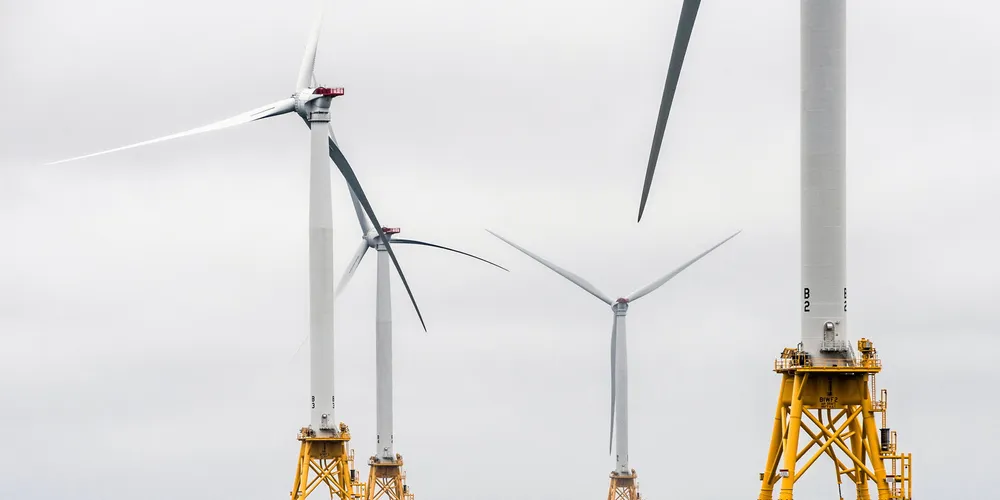Pacesetting joint venture of Orsted and Eversource was the only bidder into Rhode Island’s round 2 offshore wind tender, the state utility confirmed Friday, stating it will now review the lone proposal.
The state closed the request for proposals (RfP) on Monday for between 600MW-1GW of offshore wind development, with utility Rhode Island Energy having only received Orsted-Eversource’s bid for its
880MW Revolution Wind 2 project.
“Although we had hoped to see more developers put forward additional proposals within this appeal, we also know there are a multitude of factors at play right now,” said Dave Bonenberger, president of Rhode Island Energy said in a statement.
“As we move forward, our evaluation will consider future energy affordability and how this proposal meets the requirements of both the RFP and state law.”
Rhode Island Energy has not responded to inquiries from Recharge.
Synergies and scale
The Orsted-led partnership already has 400MW contracted to the state through its
Revolution Wind project, which will also send 304MW to neighbouring Connecticut.
“Locating projects near each other can provide economies of scale, operational synergies and potential interconnection benefits when power is flowing into the same state,” Chelsea Jean-Michel, BloombergNEF wind energy analyst, told Recharge.
As the duo alone has a contracted offshore wind project in Rhode Island, “it was the only bidder that could benefit from adding to its existing state portfolio”, she added.
The RfP was announced in
October last year by the pioneering state, which kickstarted the US offshore wind sector with the flagship 30MW Block Island wind farm built in state waters in 2016. Block Island is now owned by Orsted.
Rhode Island’s tender occurred amid both New York’s solicitation for up to 4.7GW as well as
New Jersey’s similarly large round 3 procurement for some 4GW, which opened 7 March.
“Between the relatively more attractive markets like New Jersey and New York with open procurements, and the challenges that developers are experiencing in this moment of offshore wind of market uncertainty and costs, developers did not prioritise the Rhode Island opportunity,” Kris Ohleth, director of industry-focused think tank Special Initiative for Offshore Wind told Recharge.
The US sector has been buffeted by a series of challenges, including 40-year high inflation, rising interest rates, and
burgeoning public opposition over a spate of whale deaths attributed to the industry.
Orsted communications adviser in the Americas Ryan Ferguson told Recharge: “We believe we have submitted a project plan that will deliver more good-paying jobs and affordable clean energy to Rhode Island and build on our investments to date in the state.”
Climate targets
The round 2 procurement will supply as much as 50% of the state's power demand, helping Rhode Island meet its nation-leading targets of 70% clean power by 2030 and 100% by 2033.
This may also have deflected bidders towards its larger neighbours. New Jersey is mandating 11GW by 2040 and New York 9GW by 2035, with both states
potentially looking for far more over time to reach their climate targets.
Four of the six bidders into New York’s round 3 have projects located in the pricy New York Bight WEA, and these developers “likely see more potential to build out future projects in New York”, noted BNEF’s Jean-Michel.
The Orsted JV’s bid will be assessed by Rhode Island Energy, with any power purchase agreements (PPAs) subject to approval by the state Public Utilities Commission.
Robert Beadle, chief public affairs officer for the state Office of Energy Resources (OER), declined to comment to Recharge beyond saying the agency “looks forward to discussing and reviewing the results of the offshore wind procurement with Rhode Island Energy.”
The Orsted-Eversource’s bid is for a project on its lease A-500 located in the federally designated Massachusetts wind energy area – the same lease that the partnership submitted its
Sunrise 2 project into New York’s round 3.
The JV confirmed to Recharge that this lease, site of the erstwhile Bay State Wind project that failed to win a contract in Massachusetts, could support both projects.
“We look forward to working with both states’ energy partners if selected,” said Ferguson.
UPDATED to add commentary from BloombergNEF and Special Initiative for Offshore Wind
(Copyright)